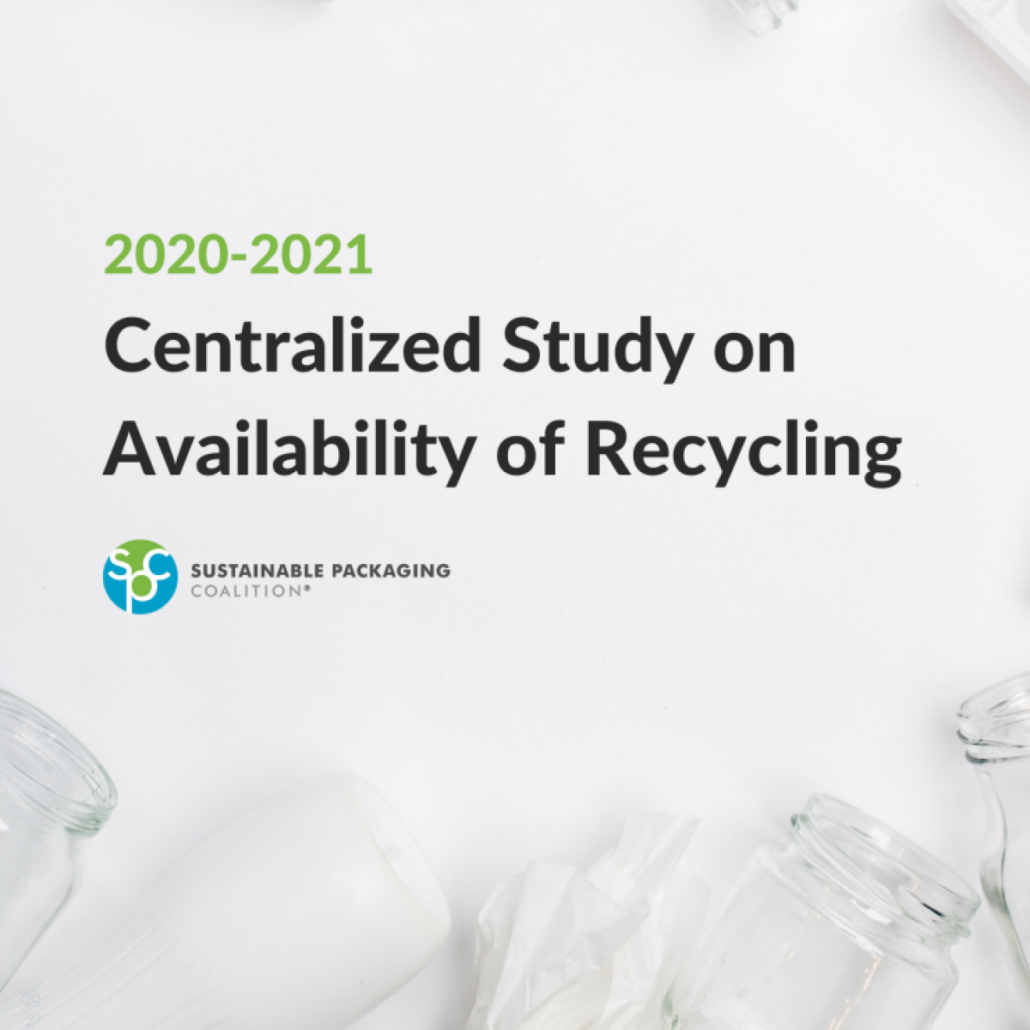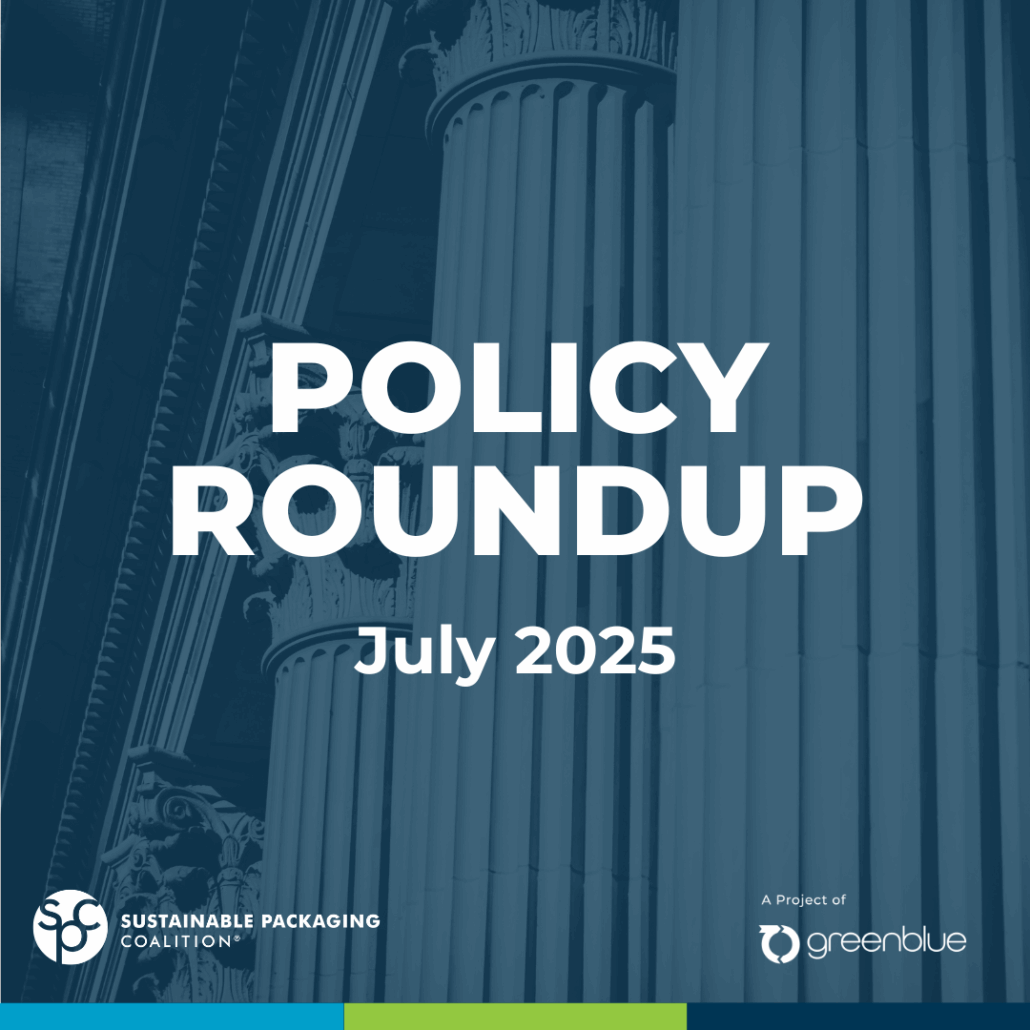When Sustainable Packaging Coalition (SPC) initially published its Centralized Availability of Recycling Study in 2016, no comprehensive study of its kind had ever been completed. The research informed and guided meaningful conversation on recycling programs and packaging acceptance for recycling in the years since. Today, SPC releases a comprehensive update of this study.
This study investigates residential recycling programs across 1,950 communities in the United States to gather information on the availability of curbside and drop-off collection programs and the acceptance of 32 types of packaging formats in those programs.
Understanding the acceptance of packaging in residential recycling programs is one vital aspect in assessing the likelihood that a certain packaging type will be recycled. This information serves a variety of purposes, including guiding improvements to recycling systems, informing packaging decisions, and substantiating one aspect of packaging recyclability claims.
KEY FINDINGS
- This study found that 91% of US residents have access to either curbside and/or drop-off recycling programs that accept packaging materials. This is a decrease from the 94% of US residents who had access to either curbside and/or drop off recycling programs in our 2016 Centralized Study on Availability of Recycling.
- Access to recycling programs varied by housing type; 23% of US residents who live in multi-family housing had no access to recycling programs, while only 3% of US residents who live in single family homes had no access to recycling programs that accept packaging materials.
- US residents’ access to recycling programs for specific packaging formats was also assessed. Access to recycling declined for all package types as compared to the 2016 study.
- Package formats with the greatest amount of recycling access included: steel food cans (87%), aluminum beverage cans (with deposit 90%, without deposit 89%), corrugated boxes (88%), paperboard boxes (84%), PET bottles (beverage bottles with deposit 88%, other PET bottles without deposit 87%), and HDPE bottles (87%).
- Package formats with the least amount of recycling access included aluminum foil and foil packaging (37%) and rigid PS packaging (45%).





